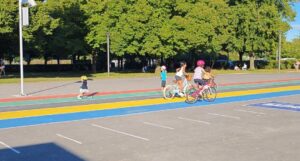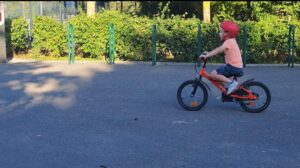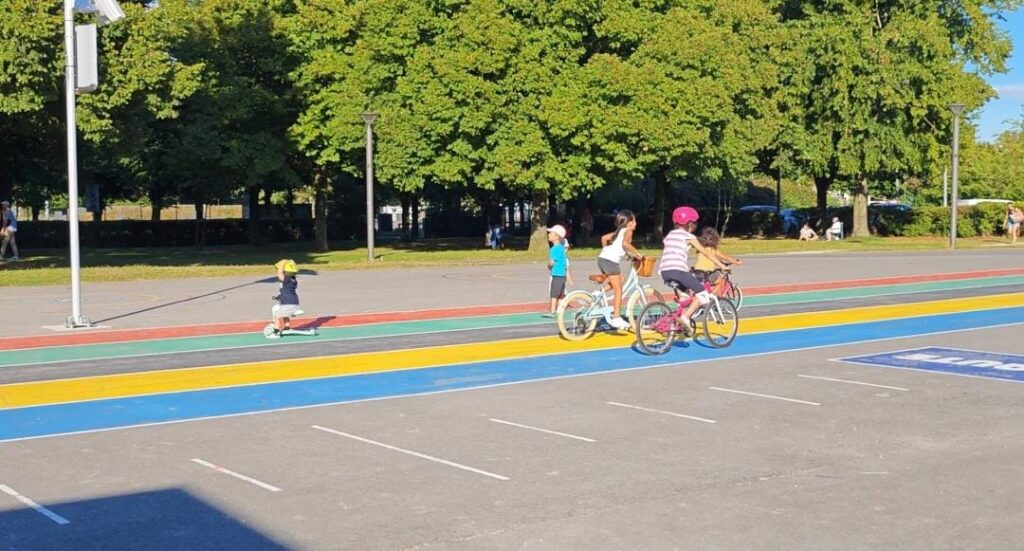
Trisha Ghoshal in Paris
The excitement around the Paris 2024 Olympics has reignited a perennial debate on social media: Why does India, with its enormous population, still struggle to secure even double-digit medals? As I walked through the streets of Reims, a charming city in France, I stumbled upon an answer that was both simple and profound.
While visiting Reims, my colleague and I decided to explore a park opposite the Stade de Reims stadium. This wasn’t just any park; it was a sprawling oasis of leisure and activity, bustling with life. As we meandered through the greenery, we observed something that starkly contrasted with the scenes back in India. People were relaxing in a variety of ways — some reading, others knitting, and a few painting. But what truly caught our attention were the children. Unlike in India, where kids are often seen buried in textbooks or tethered to screens, the children in Reims were immersed in physical activity. They were either kicking a football around or racing each other in impromptu sprints. There was a joy in the air, a palpable love for movement and play.
As we ventured further into the park, we stumbled upon a skate-park. The scene was like something out of a movie — a bustling playground of pint-sized athletes, some as young as three or four, zooming around on bicycles and skateboards. They were fearless, attempting stunts that would make a grown-up’s knees tremble. And here’s the best part — nearly all of them were wearing helmets, a sight that would have made any safety-conscious parent breathe a sigh of relief. Yet, they were left to their own devices, allowed to explore, fall, and pick themselves up again.
For the Latest Sports News: Click Here

This is when it hit me: This is precisely where India lags behind. We have parks, sure, but they are often few and far between, and mostly, they serve as mere spaces for walking or jogging. Rarely do we see children freely playing sports or learning to skateboard in these spaces. More often than not, our parks are filled with the echoes of “Don’t play too rough!” or “Be careful!” The idea of letting kids ride a bike at breakneck speed, sans training wheels, or allowing them to skateboard off a ramp is almost unthinkable.
In India, academic pressure weighs heavily on children from an early age. The relentless focus on studies leaves little room for sports, let alone for unstructured play. Parents are more likely to enrol their children in after-school tutoring than in a football clinic. And who can blame them? The societal belief that academic success is the only ticket to a secure future is deeply ingrained. But in doing so, we rob our children of the joy and benefits of physical play, the very thing that builds confidence, resilience, and a love for sport.
Moreover, when children in countries like France start engaging in sports at such a young age, they develop a natural ease with their bodies. They’re not afraid of falling because, at three or four years old, the concept of fear hasn’t fully taken hold yet. All they want to do is play. This fearless experimentation fosters a mindset that is crucial for athletes. By the time they reach adulthood, these children have already spent years honing their skills, understanding their bodies, and most importantly, cultivating a love for sports.

In contrast, many Indian children are introduced to sports much later, and often, it’s with a sense of trepidation. Sports, when they do get involved, are seen as an extracurricular activity — a secondary concern. The focus is not on enjoying the game but on winning, which adds pressure rather than pleasure. And herein lies the difference.
The sporting culture in France is not just about producing Olympians; it’s about creating an environment where sports are an integral part of life. From skate-parks to football fields, from cycling tracks to tennis courts, children are exposed to a variety of sports from a young age, and they learn to love the game for the game’s sake. This culture, in turn, produces athletes who are not just technically skilled but are also mentally tough and passionate about their sport.
As I left the park that day, I couldn’t help but think that if we want to see more Indian athletes on the Olympic podium, we need to start by creating a culture that celebrates sports from the ground up. We need more parks, more playgrounds, more opportunities for children to play freely, and most importantly, a shift in mindset — from one that prioritizes academics to one that sees sports as equally important. Only then will we begin to unlock the true potential of our vast population and see those elusive double-digit medal counts become a reality.
Also Read: Prachi Yadav: Pioneering Para-canoeing in India with a Paris Dream




